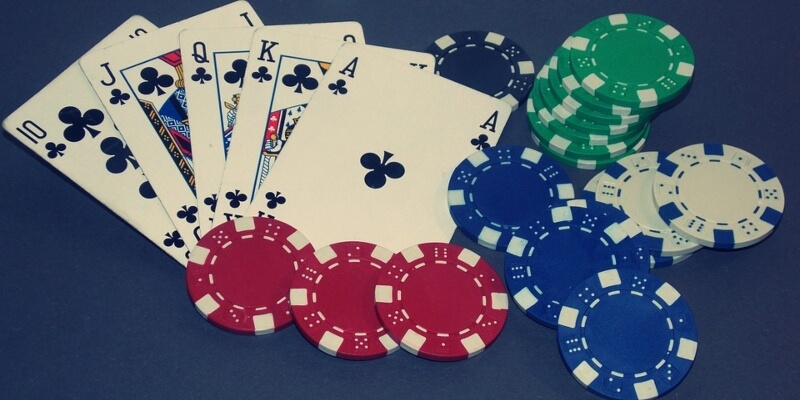A Brief History Of Casino Games

When you think of gaming, modern-day lotteries and casino games may come to mind. But the origins of gaming stretch back thousands of years, stemmed, for one, by the interest Ancient Greeks placed in mathematics. This appeal led to their civilization’s fascination in dice-rolling games.
In fact, Greek mythology makes much of the fact that even some of the famous gods engaged in gambling. Zeus, Hades and Poseidon, for example, were thought to have cast dice as a means of deciding how the universe would be split between them.
Dice games, typically played with three dice instead of two, were common, although gameplay eventually settled on using a pair of dice, which is how dice games are played today. Both the Greeks and Romans played board games, and where there weren’t any dice, they used shells or coins instead, especially when playing games like Heads and Tails.
During the Greco-Roman period, scenes painted on surviving pottery and other artefacts make it clear that betting on fights between animals, as well as on the outcome of gladiatorial combat, was a very popular pastime.
Other ancient peoples took to gaming in the same way. Evidence of gaming exists in Egypt and China, for example, and Buddhist, Jewish, Islamic and Christian religious texts are also full of references to the ‘casting of lots’ and other ways of letting chance determine event outcomes.
Modern Casinos: From the Ridotto to Today’s Powerhouses
Though gambling dates back further than history can hope to trace, we have a good idea of how casinos started. Odds and potential gaming strategies were of interest to Renaissance mathematicians and, before long, Italian merchants realised they could get hundreds of potential buyers to risk a small wager in exchange for the possibility of winning something like a fine carpet.
While mercantile gambling proved popular, citizens of Venice became keen on all forms of gambling – so that, in 1638, the city authorities eventually set aside a special building known as ‘Il Ridotto’ to host gambling in all its forms.
Il Ridotto was thus the first gambling casino. But where Italy led, France soon followed.
Between 1650 and 1800, gambling in France spread from the royal court to Parisian ‘social clubs’. By 1796, Monte Carlo had legalised casino gambling, but when France then decided to outlaw gaming, entrepreneurs simply moved further east to open a casino in the German spa resort of Baden-Baden.
Meanwhile, European settlers took gambling to the USA and elsewhere in the New World, where it again spread rapidly. Though the authorities often struggled to regulate gambling activity, during the twentieth century, America eventually became a global centre for casinos – especially the city of Las Vegas in Nevada.
As the twentieth century came to a close, tech developments allowed for an exciting change: the gambling industry was now able to shift into the online space, allowing for international access to online casinos and the immensely entertaining – and largely novel – casino games they offered to the public.
Since then, online casinos have become firmly established staples of modern entertainment.
More Fascinating History and Casino Game Origins
We’ve already covered the general shift from land-based play to online casino gaming, focusing on gambling in relatively broad terms. But the fascinating journey of discovery is far from over. In the next few sections, we go even deeper into gambling’s colourful history, zooming in on the origins of the most popular casino games gracing our screens today.
Playing Card Games
It’s widely accepted that card games originated in China around the 9th century AD, and were then introduced to India and Persia before spreading to Egypt. By the second half of the 14th century, card games were known in both Italy and Spain, probably because of Moorish influences.
Early playing cards were ornate works of art, only owned by the wealthiest sections of society. Today, virtual playing cards have taken over, powering blackjack, poker and other card-based casino games online.

Blackjack
Said to be US version of the popular French game known as ‘twenty-one’, blackjack-type games originally played in France spread worldwide from the 19th century onwards. By the 20th century, it became a regular game in land-based casinos, however, soon developed mass appeal as an online casino game.
Poker
Developed in the US in the early 19th century, poker – a.k.a. the ‘bluffing’ game – quickly became a common feature in the saloons of the Old West, as well as Canadian mining towns. At first played with set rules, poker soon became part of the online casino roster of games in the 21st century, developing a number of modern variants.
Craps
A common casino table game, craps involves rolling a pair of dice, either once or as part of a series, and betting on the outcome. In the ‘street craps’ version of the game, players wager against each other. In ‘table craps’, sometimes known as casino craps version of the game, players bet against the bank.
Roulette
The roulette wheel is said to derive from an Italian gaming wheel dated 1720, however, reports indicate that one of the first roulette games were played in Paris from around 1796, gaining popularity after its introduction to German casinos in the mid-1800s.
French roulette games feature a wheel containing the numbers 1-36 plus a zero pocket, while American roulette games include two zero pockets, labelled ‘0’ and ‘00’.
Slots
Slot machines date back to the late 1800s and quickly evolved from card-based symbols to include fruit and bar icons. Simple reels spun by a lever were the norm before electro-mechanical gaming machines arrived in the 1960s, followed by video slots in the 1970s.
Software-driven slots began to appear in the 1990s, and, with more and more online gambling sites onboarding these games, online casinos soon saw an explosion of new players betting on online slots.

